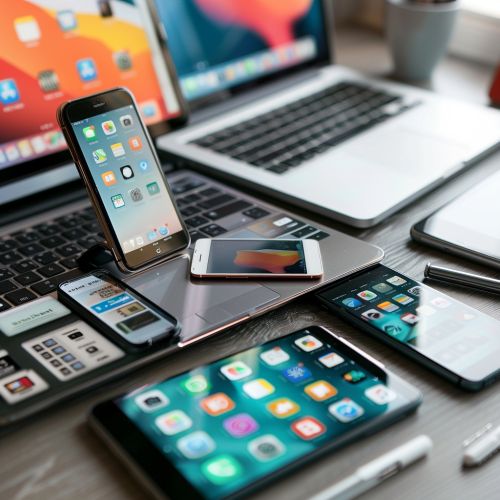Digital Technology
Overview
Digital technology refers to the system of devices and systems that use digital signals to represent information. This technology has revolutionized the way we live, work, and communicate, and it continues to evolve at a rapid pace. Digital technology encompasses a wide range of devices and systems, from personal computers and smartphones to advanced robotics and artificial intelligence.


History of Digital Technology
The history of digital technology can be traced back to the invention of the transistor in 1947. This small electronic device, which could amplify and switch electronic signals, paved the way for the development of more complex digital systems. In the 1950s, the first digital computers were created, marking a major milestone in the evolution of digital technology.
Digital Signals
At the heart of digital technology are digital signals, which are used to represent information in a binary format. Unlike analog signals, which can take on any value within a certain range, digital signals can only take on one of two values: 0 or 1. This binary system is the basis for all digital technology, from computers and smartphones to digital televisions and cameras.
Digital Devices
Digital devices are electronic equipment that use digital technology to function. These devices include personal computers, smartphones, tablets, digital cameras, and many others. These devices have become an integral part of our daily lives, enabling us to work, communicate, and entertain ourselves in ways that were unimaginable just a few decades ago.
Digital Communication
One of the most significant impacts of digital technology has been in the field of communication. Digital communication systems, such as email, social media, and video conferencing, have made it possible to communicate instantly with people all over the world. These systems use digital signals to transmit information over networks, enabling us to send and receive messages, images, and videos in real time.
Digital Media
Digital media refers to any type of media that is created, stored, and accessed using digital technology. This includes digital images, videos, music, and text. Digital media has transformed the way we consume and produce media, enabling us to access a vast amount of content at any time and from anywhere.
Digital Data Storage
Digital data storage is another important aspect of digital technology. Digital data is stored in binary format on various types of storage devices, such as hard drives, solid-state drives, and flash memory cards. These devices enable us to store and retrieve large amounts of data quickly and efficiently.
Digital Security
With the increasing use of digital technology, digital security has become a major concern. Digital security involves protecting digital devices and data from unauthorized access, use, disclosure, disruption, modification, or destruction. This includes measures such as encryption, firewalls, and antivirus software.
Future of Digital Technology
The future of digital technology is likely to be shaped by advances in areas such as artificial intelligence, machine learning, and quantum computing. These technologies have the potential to revolutionize many aspects of our lives, from the way we work and communicate to the way we entertain ourselves and interact with the world around us.
